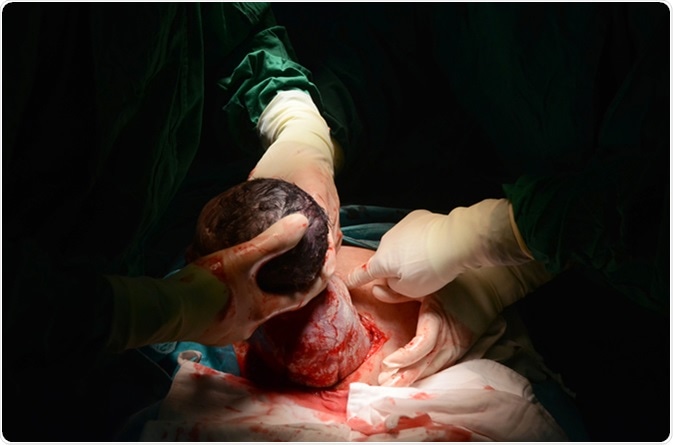Researchers from NYU School of Medicine studied the effects of Caesarean section on the weights of the offspring in laboratory mice and found that they are more at risk of becoming overweight and obese.
They noted that mice that were born via C section gained 33 percent more weight on an average in 15 weeks after they were weaned compared to mice that were born vaginally. Female offspring were found to gain 70 percent more weight. The study was published online in Science Advances yesterday.
The team of researchers looked at the differences in the gut bacteria or the microbiome that lives within the intestines and provide animals with assistance in immunity, metabolism and digestion. They speculated that there might be alterations in these gut bacteria due to the advent and rise of antibiotic therapy as well as due to C-sections. And they decided to see if this had anything to do with the rising rates of obesity. The World Health Organization estimates that Caesarean sections are needed in around 15 percent of births due to risks posed to the baby and the mother. However actual numbers show that one in two babies are born via C-Section in several countries notably Dominican Republic, Brazil and Iran explain these researchers.

New baby being born during cesarean section. Image Credit: Chattapat / Shutterstock
Human studies in the past have shown connections between C-sections and obesity. The whys and wherefores of this has not been explored and microbiome as the reason for this has also not been explored. This study was an attempt to understand this connection.
The researchers explain that the maternal microbes are transmitted to the babies as they are born vaginally and these microbes help teach the developing immune systems of the baby. Lead researcher and microbiologist Maria Dominguez-Bello, PhD, associate professor in the Department of Medicine at NYU School of Medicine, explained that this was the first study that showed that there was a direct association between C-section and increased body weight in mammals. She added that because the number of caesarean sections are on the rise, the effects of these on obesity becomes more and more important.
For this study the team chose 34 laboratory mice that were delivered by C-section and compared them with 35 mice that were born vaginally. They then checked on the weight gain of these mice and simultaneously used genomic techniques to analyse the DNA of the various gut bacteria that these mice were carrying since their birth up to their adulthood. Earlier studies provided a template of which bacteria normally colonize the guts of mice pups. Now they compared the gut bacteria of the mice born either by C-section or vaginally.
Their study revealed that the mice that were born via C section put on more weight and also had a significantly different gut bacteria. Gender did not play a role in these differences. Mice that were born normally with time had a normally maturing gut bacteria. Among mice born surgically, the microbiome developed rapidly initially but later in life they became relatively immature. Bacterial groups that are found more commonly among babies delivered vaginally include Bacteroides, Ruminococaceae, and Clostridiales. Earlier studies have shown that these bacteria are associated with lean body weight.
Dominguez-Bello is also leading a pilot study that checks for changes in the gut microflora and associates it with weight gain and obesity. That study found that if the babies born surgically could be swabbed with the mother’s birth canal fluids, they could get the bacteria that they would have if delivered via the vagina. More research is needed to this end to check if this is really feasible and holds true for large populations.